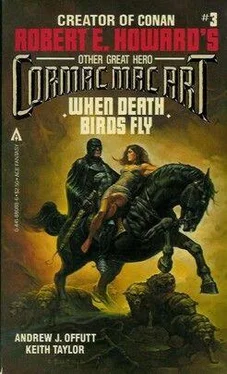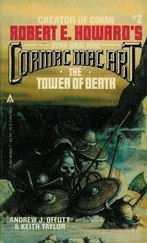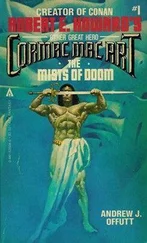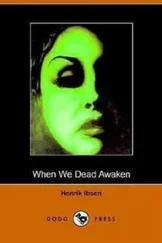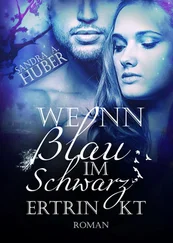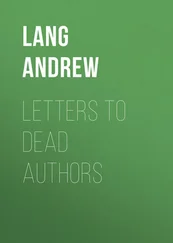Andrew Offutt - When Death Birds Fly
Здесь есть возможность читать онлайн «Andrew Offutt - When Death Birds Fly» весь текст электронной книги совершенно бесплатно (целиком полную версию без сокращений). В некоторых случаях можно слушать аудио, скачать через торрент в формате fb2 и присутствует краткое содержание. Жанр: Фэнтези, на английском языке. Описание произведения, (предисловие) а так же отзывы посетителей доступны на портале библиотеки ЛибКат.
- Название:When Death Birds Fly
- Автор:
- Жанр:
- Год:неизвестен
- ISBN:нет данных
- Рейтинг книги:5 / 5. Голосов: 1
-
Избранное:Добавить в избранное
- Отзывы:
-
Ваша оценка:
- 100
- 1
- 2
- 3
- 4
- 5
When Death Birds Fly: краткое содержание, описание и аннотация
Предлагаем к чтению аннотацию, описание, краткое содержание или предисловие (зависит от того, что написал сам автор книги «When Death Birds Fly»). Если вы не нашли необходимую информацию о книге — напишите в комментариях, мы постараемся отыскать её.
When Death Birds Fly — читать онлайн бесплатно полную книгу (весь текст) целиком
Ниже представлен текст книги, разбитый по страницам. Система сохранения места последней прочитанной страницы, позволяет с удобством читать онлайн бесплатно книгу «When Death Birds Fly», без необходимости каждый раз заново искать на чём Вы остановились. Поставьте закладку, и сможете в любой момент перейти на страницу, на которой закончили чтение.
Интервал:
Закладка:
“By death! This does not fascinate. What care I of the how of it? You may take your head between your legs and look into your own backside, for aught it matters to me! I slew yesterday and fetched home a comely doxy; today I had passage at arms with a strong man of weapons and slew him with a sword in this hand. It is action fascinates me-and information. Give you me false information, and I will give you molten lead to quench your thirst.”
Again, a plain statement of fact, almost dispassionate, after Sigebert’s first passionate outburst. Lucanor nodded. “That is understood,” he said, with no sign of fear.
“Ah. Confidence upon this matter? Good, then!” Again Sigebert waved a’ hand, for he had slain one man this day, and bested two others, and reduced this one. He sat his chair as though enthroned. “Mayhap now you should rest, and later eat your fill and wash it down with good wine without water. You will have need of restoring your strength.”
The utterance gave warning to Cathula, who was listening at the door.
Swiftly, silently and with her heart apound, she fled away with hardly a rustle of her new clothing. Was the second time she had eavesdropped on the demonic master of this nightmare house to which he’d brought her. She had been listening the night before when the monstrous black owl appeared in his privy chamber, and she had managed to gain a glimpse of it as it flew away. Cathula neither knew what it was nor had aught of deep thoughts on the subject, having understood little of what she had heard. She was a peasant, and not of this land, and not yet fifteen. She assumed merely that the creature was Sigebert’s familiar demon, and that they challenged each other. She had heard of such; that preternatural forces were hard to control, and endangered the person who sought that control.
What mattered to her was that she now knew names that belonged to deadly enemies of the scarfaced Frank, her mother’s murderer; the names of two pirates.
Wulfhere the Skull-splitter and Cormac mac Art.
11
“She will do, Wolf!”
The ship was a ponto, flat-bottomed and therefore shallow of draught. This gave advantage in some ways, although a strong wind might blow her sideways across the waves like a scudding wooden tray. None the less, she was sturdy and well rigged, with the same effective iron anchors Raven was equipped with. Indeed, Cormac had discovered the value of iron anchors on these same coasts in his days with the reivers of Eirrin, and shared the knowledge with Wulfhere later.
The latter appeared well satisfied. “Aye,” he went on. “There be ample room in her belly to hide us all, and harmless she looks, a mere trader. Were we to fare in one of the prince’s corsair galleys we’d have closer inspection to face!”
“So thought I,” Cormac said, “and despite our friendship, one of Howel’s galleys had been much to ask. He loves them as his children.”
“They be sweet vessels,” Wulfhere agreed, and added in duty-bound chauvinism, “for southern ships.”
Turning, he tramped down the timber jetty where the ponto was moored, her wooden fenders squealing with friction as she rocked forward and back. Huge, immense of height and thew, with his fiery mane and beard, his mail shirt and weapons and his golden jewelery, he resembled some great autumnal tree that, hung with sacrifices of battle-gear, had heaved up its roots and taken to walking about.
Beside him, Cormac walked with tigerish litheness. Wulfhere’s Gaelic battle-brother was one of the few men who did not show meanly by comparison with the hulking Dane. Part of the reason lay in the extreme contrast they made.
Where Wulfhere was massive, Cormac’s form was lean and rangy, yet instinct with savage vitality-like the wolf he was called. On him were no glittering, flashing ornaments of gold. His black mesh-mail shirt, and the helmet unadorned save for its crest of horsehair, sorted well with the grimness of his dark face. Thin-lipped it was, shaven and marked by a number of scars. Set in that somber mask, his cold, narrow grey eyes had a peculiarly sinister look.
Prince Howel awaited them on the beach. Morfydd stood beside him, her long black hair blowing wild in the sea-wind. Nine Bretons were there as well, the air of seamen bred about them.
“What think you?” Howel asked.
“She’s a good choice for the work,” Wulfhere said. “I’m indebted to ye, prince.”
“It’s little enow.”
Howel indicated the foremost of the Armorican seamen, a smallish, hard-bitten man with a seamed face mostly nose. Was a nose that seemed to have been violently struck once at least from every direction. Shrewd eyes nestled close to it, seemingly for shelter, looking with tough-minded appraisal from beneath sandy brows.
“This is Odathi,” the prince told them. “He and his men are to take the ship into Nantes for you-and bring you safely out again when you have your vengeance.”
Cormac remembered Odathi of old. He couldn’t have asked a better man for his purpose. The Armorican was a skilled mariner, and able to hold his tongue. He merely nodded by way of greeting.
“We will come out again,” Wulfhere said confidently. He turned to his Danes. “Look ye, blood-spillers, there is our ship! And since it’s ours she is for this little time and this one purpose, I’ll be naming her anew. This voyage, her name is Norn !”
He named the three women of Northlands belief; harsh goddesses who wove on the loom of Fate, and whose decrees not even Odin could reverse.
“I call her that,” Wulfhere said loudly, in a moment of fancy unusual for him, “because she’s to be the instrument that brings Sigebert One-ear’s weird upon him!”
The Danes roared with laughter, shaking their spears and clashing swords or ax-heads on their shields of linden-wood. Was the sort of fierce joke they appreciated.
Cormac said quietly to Morfydd, “No Sight to offer us? No prophecy as to the outcome?”
Morfydd smiled with a kind of tranquil compassion. “Suppose I had, Wolf of the blue sea? Suppose my prophecy were evil? Would you or your friend or any of your men abandon your vengeance because of it?”
Cormac shook his black head.
“What if I prophesied success? Could that add the faintest aught to your determination?”
Again the reiver shook his head.
“Then I should not speak but to wish you good fortune-as I do, Cormac Art’s son, from my heart.”
Cormac looked at her for a moment, and for no reason he could name he thought of Samaire of Leinster in Eirrin. Then he must clasp Morfydd’s hand and Prince Howel’s, and lead the tramping Danes aboard Norn , for it was time to go.
The weather was clouded this day, and turbulently windy. Standing on Norn’s high stern, Cormac and Wulfhere watched the waves lashed to a running waste of foam, while the sails of thin dressed leather were strained taut as drumheads. The masts creaked. Wulfhere’s great beard streamed before him like a flame.
“Two days,” he said softly, fondling the haft of his beloved ax. “Two days at most will bring us there, Cormac.”
“Aye,” the Gael agreed absently. He’d been gazing at the sky, thinking how dark it had suddenly turned. A strange note rode the wind… a storm brewing? Or a squall about to strike! He turned his gaze upward again, and felt his body shudder.
“Wulfhere!” he said hoarsely.
The Dane followed his line of sight. For a moment, he saw only dark clouds tumbling before the strong wind. Then they parted, and terrible shapes swept out of the murk to fill the great empty spaces of the sky.
Women rode naked on wild-maned horses. Their arms, holding the reins, were red to the elbows with blood. Their eyes looked eastward, alight with exultation at some greater slaughter that only they could see. Dreadful laughter twisted their mouths. Black flocks of carrion birds kept pace with them, hungry and expectant.
Читать дальшеИнтервал:
Закладка:
Похожие книги на «When Death Birds Fly»
Представляем Вашему вниманию похожие книги на «When Death Birds Fly» списком для выбора. Мы отобрали схожую по названию и смыслу литературу в надежде предоставить читателям больше вариантов отыскать новые, интересные, ещё непрочитанные произведения.
Обсуждение, отзывы о книге «When Death Birds Fly» и просто собственные мнения читателей. Оставьте ваши комментарии, напишите, что Вы думаете о произведении, его смысле или главных героях. Укажите что конкретно понравилось, а что нет, и почему Вы так считаете.
